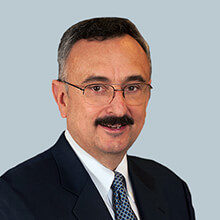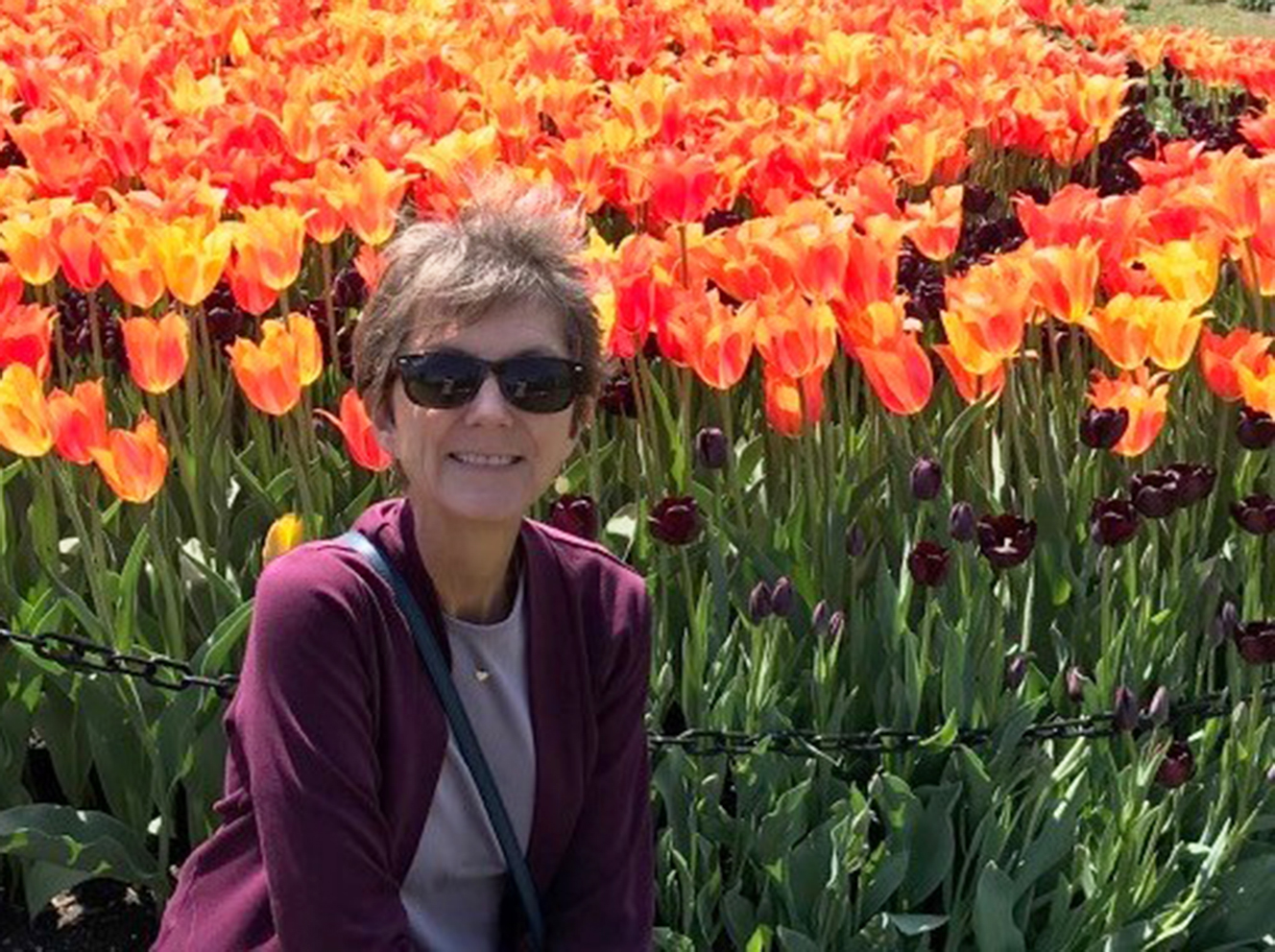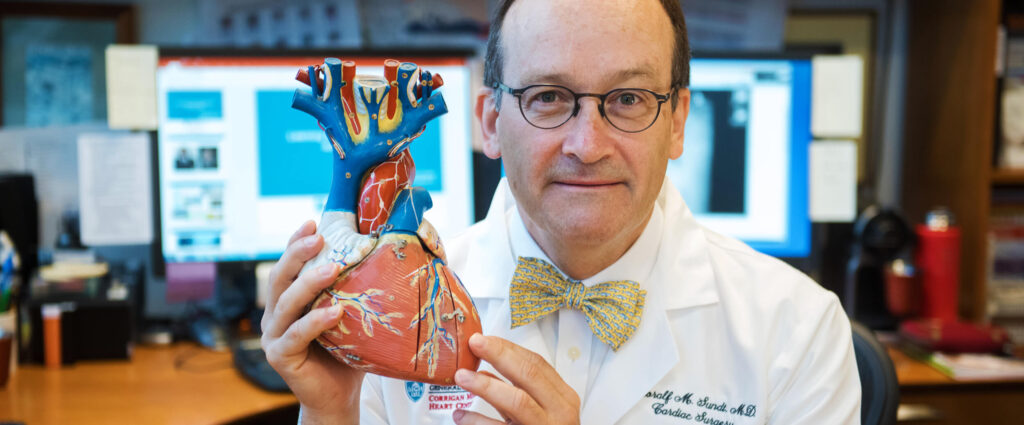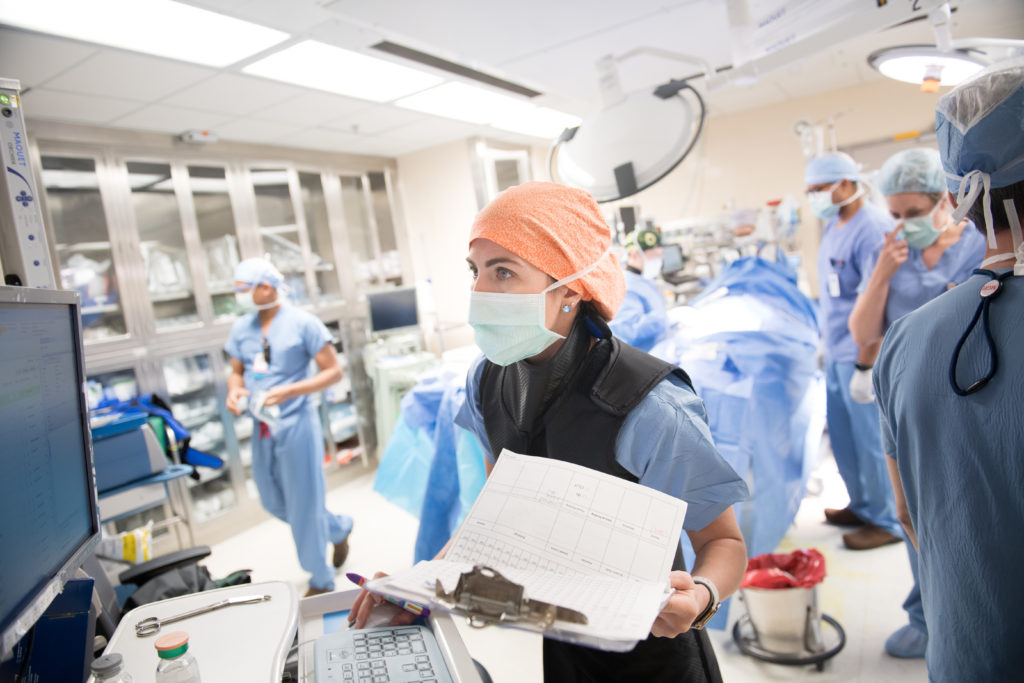Carol Goodermote, 59, of Berlin, New York, knows the importance of being in tune with her body to ensure good health. She began to cultivate this practice when she was diagnosed with Hodgkin’s Lymphoma, a cancer of the lymphatic system, at age 22 and received intensive treatment that included three surgeries, chemotherapy and radiation therapy.
Nearly 37 years later, Carol was diagnosed with another type of cancer — a malignant neuroendocrine tumor (NET) on her pancreas. This discovery was made while she was seeking treatment for severe aortic stenosis, a common condition that restricts blood flow out of the heart.
Carol came to Massachusetts General Hospital to have her NET removed through a Whipple procedure performed by Carlos Fernandez-del Castillo, MD, gastrointestinal surgeon, director of the Pancreas and Biliary Surgery Program and clinical co-director of the Center for Gastrointestinal Cancers at the Mass General Cancer Center, and her aortic stenosis repaired through a transcatheter aortic valve replacement (TAVR) performed by Ignacio Inglessis-Azuaje, MD, cardiologist and director of the Structural Heart Disease Program at the Mass General Heart Center.
A Vacation Cut Short
On January 1, 2020, Carol Goodermote and her husband traveled to Florida for the start of their four-month winter vacation. Carol felt fatigued as soon as she arrived, but did not initially give much thought to it.
After a few days, Carol’s exhaustion had grown, and she’d developed a new pain in her abdomen. She immediately booked an appointment at a local institution for an ultrasound and blood work — revealing multiple abnormalities that all pointed to her pancreas.
Cutting their vacation short, Carol returned home to New York to work with her network of doctors to diagnose her condition. After a biopsy, a CT scan and an MRI, her team confirmed her diagnosis: a malignant pancreatic neuroendocrine tumor.
“I was just trying to be cautious, because the discomfort really wasn’t very bad,” she said. “There were days I doubted it and thought I might be overreacting. But I wasn’t. It was cancer.”
Pancreatic cancer is most commonly discovered only after it has become metastatic, or spread beyond the pancreas to other abdominal organs, bile ducts or lymph nodes. Cancer that starts in the pancreas is most often classified as adenocarcinoma, but NETs, also known as islet cell tumors, can also occur.
In Carol’s case, the NET discovered on her pancreas was not yet metastatic, but was large enough that it had started to touch other nearby organs and was growing into her portal vein, the main vein that brings the blood from the intestines to the liver.
Her doctors told her she caught it just in time.
Choosing Mass General
Carol’s New York care team recommended that she undergo a Whipple procedure, or pancreatoduodenectomy, which involves the removal of the head of the pancreas, the duodenum, the bile duct and the gallbladder. This complex, open surgery takes an average of five to six hours to complete and is the preferred approach when the pancreatic cancer is confined to the head of the pancreas. In her case, it also involved removing a segment of the portal vein, since the tumor was growing into it.
“I wanted to have both the TAVR and Whipple done in one facility,” said Carol. “Having all of my doctors available during both procedures made me feel very comfortable.”

In addition to a unified approach to her separate conditions, Carol hoped to work with an experienced care team with a successful track record of performing the Whipple procedure on people with a history of cancer and significant scar tissue.
“When I was first researching the Whipple, it just kept popping up in my searches and by word of mouth,” she said. “’Mass General, Mass General.’ I knew I had to call them.”
Carol looked no further and set up a virtual consult with Dr. Fernandez-del Castillo.
“Procedures like the Whipple with higher complication rates are best done in specialized centers that perform it regularly and successfully,” said Dr. Fernandez-del Castillo. “This was particularly pertinent in Carol’s case, since she also had a very severe aortic stenosis that needed to be fixed prior to the Whipple, and an NET growing into the portal vein.”
In regard to her initial consultation, Carol said that she appreciated Dr. Fernandez-del Castillo’s transparency with her.
“He was very upfront with me and told me what a serious surgery it was. I just knew I wanted him to do my surgery. It was a relief to find him,” she said.
In September 2020, Carol came to Mass General for the TAVR procedure to treat her aortic stenosis with a care team led by Dr. Inglessis-Azuaje. Five weeks later, she returned again for the Whipple procedure with Dr. Fernandez-del Castillo.
A Successful Surgery
Dr. Fernandez-del Castillo enlisted the additional support of a Mass General transplant surgeon as part of Carol’s operating room care team — a precautionary measure to minimize potential complications when resecting the tumor from the portal vein.

“Some people would say that this element of her condition made it inoperable, but Mass General has so many specialties under one roof that can help,” said Dr. Fernandez-del Castillo. “We were prepared to remove the vein and put it back together again, if necessary. But we were able to remove the tumor without having to take this step. It was very successful.”
On the day of surgery, Carol recalls being wheeled into the operating room knowing that she was in the hands of the best team possible. Following surgery, her nurses demonstrated a particular kindness when it came to administering her pain medication.
“I am a big baby when it comes to taking pills,” she said. “But they never once told me to just do it. Actually, they brought something that would crush the pills so they would be easier to swallow.”
Carol remained at the hospital for a little over a week following her surgery and has continued to stay in consistent touch with her care team through telemedicine.
Grateful for a Good Decision
Over a year later, Carol has fully recovered and says that her lifestyle is similar to what it was before her surgery. The only difference that she has noticed is a slight decrease in overall energy levels and appetite.
“I’d recommend Mass General to anyone with a serious diagnosis,” she said. “I found a team that had so much experience in my condition. I know I made the right choice, and that feels good.”
This story first appeared on the Mass General Gastrointestinal & Oncologic Surgery news page.
- To make a gift or learn about supporting the Department of Surgery, please contact us
- To contact the Division of Gastrointestinal & Oncologic Surgery directly, please call one of the two numbers below:
- Gastrointestinal Surgery: 617.724.2453
- Oncologic Surgery: 617.724.4000




